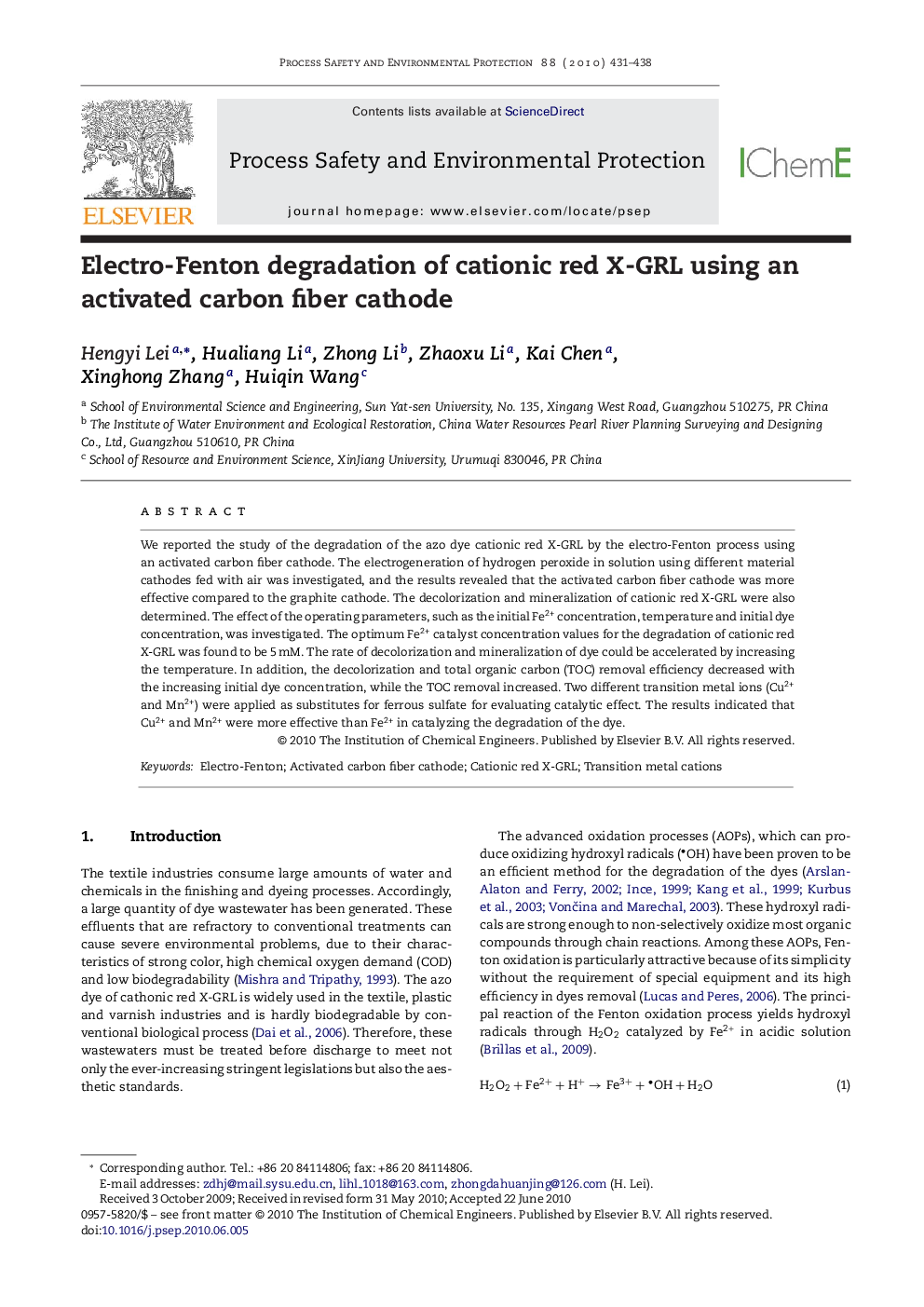| کد مقاله | کد نشریه | سال انتشار | مقاله انگلیسی | نسخه تمام متن |
|---|---|---|---|---|
| 588623 | 878586 | 2010 | 8 صفحه PDF | دانلود رایگان |

We reported the study of the degradation of the azo dye cationic red X-GRL by the electro-Fenton process using an activated carbon fiber cathode. The electrogeneration of hydrogen peroxide in solution using different material cathodes fed with air was investigated, and the results revealed that the activated carbon fiber cathode was more effective compared to the graphite cathode. The decolorization and mineralization of cationic red X-GRL were also determined. The effect of the operating parameters, such as the initial Fe2+ concentration, temperature and initial dye concentration, was investigated. The optimum Fe2+ catalyst concentration values for the degradation of cationic red X-GRL was found to be 5 mM. The rate of decolorization and mineralization of dye could be accelerated by increasing the temperature. In addition, the decolorization and total organic carbon (TOC) removal efficiency decreased with the increasing initial dye concentration, while the TOC removal increased. Two different transition metal ions (Cu2+ and Mn2+) were applied as substitutes for ferrous sulfate for evaluating catalytic effect. The results indicated that Cu2+ and Mn2+ were more effective than Fe2+ in catalyzing the degradation of the dye.
Research highlights▶ The activated carbon fiber cathode was more effective compared to the graphite cathode. ▶ The rate of degradation was accelerated by increasing the temperature. ▶ The total organic carbon removal efficiency decreased with the increasing initial dye concentration, while the TOC removal increased. Cu2+ and Mn2+ were more effective than Fe2+.
Journal: Process Safety and Environmental Protection - Volume 88, Issue 6, November 2010, Pages 431–438